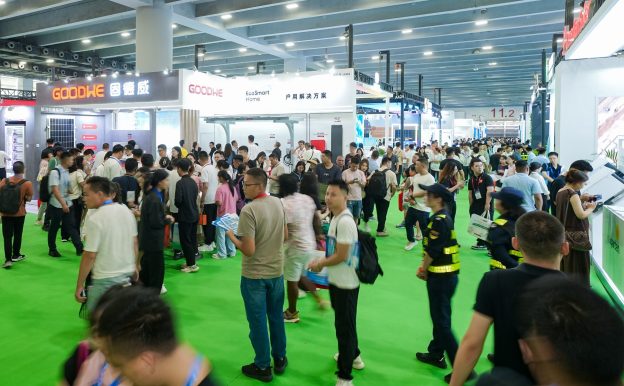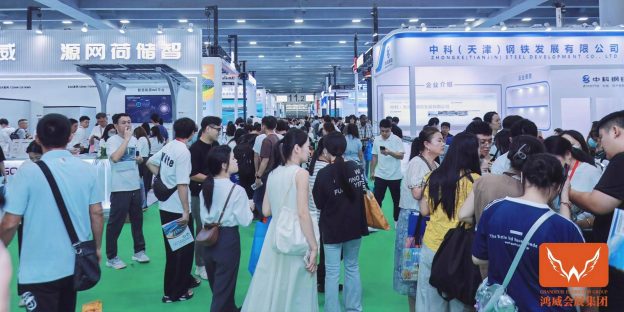This week the global bioenergy community gathers in Vienna. From 1st to 4th June, 1239 registred participants (as of May 22nd) from 76 countries and 40 associations and International organizations will animate the 23rd European Biomass Conference and Exhibition. With over 803 presentations from 2,650 authors and co-authors, 3 parallel events and 7 workshops, the EUBCE has become a world leading event to get the latest results from top research organizations, as well as to discover the most innovative bioenergy applications from industry and to hear from international subject experts about the state of play and the policy context that are shaping this sector.
EUBCE is also a prime event to promote business with match-making sessions, networking opportunities and social events throughout the week and over 43 exhibitors showcasing their innovations, products and advanced services.
Ingwald Obernberger, this year’s Conference General Chairman and managing director of Bios Bioenergiesysteme GmbH, says: “it is a special honour to welcome you in the heart of Europe and in a country which is well known for its strong bioenergy industry as well as its large number of bioenergy installations. The share of renewable energy on the gross national energy consumption in Austria amounts to almost 30% of which is covered from bioenergy (about 60%). Austria has a long history in bioenergy and has a leading role in Europe regarding small- and medium scale biomass combustion technologies – Austrian biomass furnace and boiler manufacturers are European technology and market leaders and show export rates of typically more than 75%. Bioenergy technologies are under a rapid development process. Permanent R&D activities are therefore very important for all market players. But also the political framework conditions must fit because new technologies need support for market introduction. This conference will show the newest R&D results and will support networking and communication exchange between researchers but will also set the scene towards market developments and political needs to make bioenergy a success.
David Baxter, EUBCE Technical Programme Coordinator, says: “It is great pleasure to welcome all participants to the 23rd European Biomass Conference and Exhibition. The event will be launched on the first morning with a series of plenary presentations on successful industrial biomass applications. We have already seen in recent years that advanced technologies are making impressive progress; commercial-size operation is close to being a reality and essential to achieve a low-carbon society, “We will also hear how the political background has been evolving to support environmentally sustainable exploitation of biomass for bioenergy, biofuels and biomaterials. The main theme running across the conference is integration and in Vienna this covers not only integration of the efforts of research, industry and policy makers to ensure fully sustainable progress of the emerging bioeconomy, but how the bioeconomy is to be integrated with existing fossil-dominated sectors, and particularly with other renewable energy supplies.
There will be also a chance to take part in a Moderated Panel Discussion with policy and industry makers on the direction of biomass utilisation.
Among these high level panelists, Vladimir Šucha, Director, DG JRC, European Commission says: I am pleased that the JRC has contributed as a neutral broker to this conference by organising the scientific programme and ensuring a platform for scientific exchange and knowledge transfer between science, industry and business at a moment when energy policy is so central to the EU. The European Union has set out a new energy strategy for a more secure, sustainable and low-carbon economy, which emphasizes the role of renewable energy technologies for achieving the goals of the Energy Union. Indeed, it aims for the EU to become the world leader in renewable energy technologies. This includes sustainable production and use of biomass and requires investment in advanced, sustainable alternative fuels, and more generally in the bio-economy. It is clear that strengthening EU leadership in innovative advanced biofuels and bioenergy technologies and increasing their market uptake is essential to reaching the EU ambitious energy and climate goals. This requires incentives and regulatory support based on sound science as well as increased efforts in research and innovation. I wish all participants an exciting dialogue which leads to new ideas and new collaborations that reinforce the position of biomass as a future energy source and strengthen bioenergy in the EU energy mix".
Giovanni F. De Santi, Director, Institute for Energy and Transport, DG JRC, European Commission says: “The JRC has a key and longstanding role providing scientific support across the whole policy cycle as regards biomass and bioenergy sustainability, availability and technological development and we are as well contributing to the comprehensive policy package of regulatory and research measures set out by the Energy Union. I believe that this leading conference and exhibition provides the perfect place for a fruitful exchange with a vibrant industrial and research community gathered this week in Vienna".
Elisabeth Köstinger, Austrian Member European Parliament says: "As a supporter of the eco-social market economy, I am convinced that there is no alternative to a sustainable and resource-efficient economy. Bioenergy is a key element in the EU's objective to become the world's leader in renewable energies. Promoting a strong bio-economy is therefore a stepping stone on this path to an environmentally sound, energy-independent future."
Josef Plank, President of the Austrian Biomass Association says: “The further development and utilization of renewable resources like biomass, sun, wind and hydro shows large chances for innovative companies in Austria. In the next 35 years the energy supply system will change dramatically towards renewable energy and Austria has the technology to meet this challenge”.
Marko Janhunen, Vice President, Stakeholder Relations, UPM Biorefining and Chair of Leaders of Sustainable Biofuels says: “EU BC&E is taking place at a critically important moment for bioenergy sector, and for advanced biofuels industry especially. The ILUC directive has been finalized, and industry is analyzing whether it will move investments in advanced biofuels forward. We are also moving towards Paris COP meeting and next year we expect to see concrete proposals for EU’s 2030 energy and climate policy. This is the moment for industry to make it clear that advanced biofuels provide cost efficient opportunity to reduce GHG emissions in the transport sector. Advanced biofuels provide environmental benefits by strongly reducing GHG emissions, economic benefits by decreasing dependency on outside EU energy sources and social benefits through job creation in high-tech industry that is based on EU innovations and domestic raw materials. Now is the right time to come together and discuss the opportunities and challenges in our sector. EUBCE today, as always, provides a great platform for internal discussion within the industry, and for exchange of views with key decision makers”.
Alexander Zschocke, Senior Manager Aviation Biofuels Lufthansa Group, says: “Aviation has ambitious CO2 reduction targets and bio kerosene will be of crucial long term importance to reach them. However there will be numerous challenges to overcome on the way and feedstock will be a major one. The presentation will discuss what has been achieved in the past five years and where the challenges are”.

For further information: www.eubce.com







